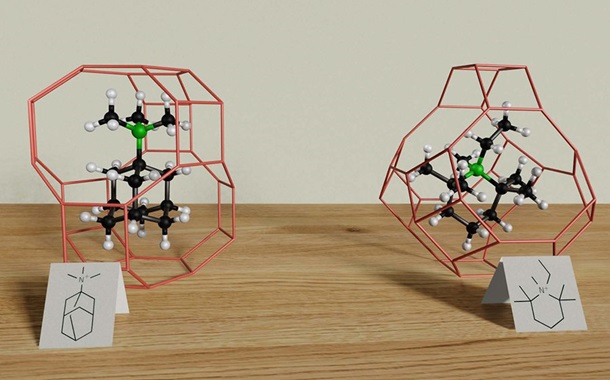Assessing the Impact of Digitalization and Technology on Patient Compliance in Healthcare Services
Downloads
Nowadays, technology is omnipresent and an integral part of everyday life. Because patient compliance is a determinant of the treatment outcome, it is therefore essential for medical staff to know and understand how technology can cause patients to rightly or poorly adhere to their treatment. The objectives of this research were to investigate the major technology-related factors, which affect patient compliance, assess patients` reactions which are associated to poor adherence to treatment and determine the right measures, attitudes and behaviors for healthcare professionals to adopt to optimize patient compliance. The research was undertaken using a mixed methods approach whereby the quantitative data collected was analyzed using descriptive statistics while the qualitative data collected was analyzed using the Grounded Theory method. It was found that the vast amount of information and communication services offered by technology nowadays can adversely influence certain factors such as patients` trust, attitude, comprehension, apprehension, confusion, frustration, and personal emotions, which in turn can affect patient compliance. It was also found that technology could positively affect patient compliance as it offers interesting tools that can, for example, remind patients about their appointments, medications, and routines while they are undergoing treatment. This paper presents major insights on the impact of technology on patient compliance and helps healthcare organizations optimize the patient experience in the digital age.
Doi:10.28991/HIJ-2021-02-03-06
Full Text:PDF
Downloads
Haynes R. B., Sackett D. L., & Taylor D. W. (1979). The Johns Hopkins University Press, 1-7. Baltimore, Maryland, United States.
Commonwealth Health, COMSEC (2015). Health in Mauritius, Mauritius. Available online: https://www.commonwealthhealth. org/africa/mauritius/ (accessed on April 2021).
Sweeney, J. C., Danaher, T. S., and Mccoll-Kennedy, J. R., (2015). Customer effort in value cocreation activities: Improving quality of life and behavioral intentions of health care customers. Journal of Service Research, 18(3), 318–335. doi:10.1177/1094670515572128.
Santosh Kumar, R., & Niharika, V. (2019). Patient Compliance: A Milestone in Therapy. Journal of Drug Delivery and Therapeutics, 9(4-s), 815–818. doi:10.22270/jddt.v9i4-s.3370.
Maronde, R. F., Chan, L. S., Larsen, F. J., Strandberg, L. R., Laventurier, M. F., & Sullivan, S. R. (1989). Underutilization of Antihypertensive Drugs and Associated Hospitalization. Medical Care, 27(12), 1159–1166. doi:10.1097/00005650-198912000-00007.
Lipid Research Clinic Program (1989). The lipid research clinks cawnary primary prevention trial results of incidence of coronary heart disease to lower cholesterol, Journal of the American Medical Association, (251):365-374.
Beta-Blocker Heart Attack Trial Research Group (1982). A randomized, trial of propranolol in patients with acute myocardial infant mortality results, Journal of the American Medical Association, (247):1701-1714.
Donovan, J. L., & Blake, D. R. (1992). Patient non-compliance: Deviance or reasoned decision-making? Social Science & Medicine, 34(5), 507–513. doi:10.1016/0277-9536(92)90206-6.
Eatock, J., & Baker, G. A. (2007). Managing patient adherence and quality of life in epilepsy. Neuropsychiatric Disease and Treatment, 3(1), 117–131. doi:10.2147/nedt.2007.3.1.117.
Beaker, S.A., Kirscht, J.P.; Becker, M.H. (1981). Steering Committee of the Physicians' Health Study Research Group. Final report on the aspirin component of the ongoing. Understanding and Mg patient compliance. Annals of Internal Medicine; (102): 258-2158.
Bond, W.S., Hussar, D.A. (1989). Detection methods and Physicians' health study. The New England Journal of Medicine; (321): 129-135.
Santosh Kumar, R., & Niharika, V. (2019). Patient Compliance: A Milestone in Therapy. Journal of Drug Delivery and Therapeutics, 9(4-s), 815–818. doi:10.22270/jddt.v9i4-s.3370.
Vermeire, E., Hearnshaw, H., Van Royen, P., & Denekens, J. (2001). Patient adherence to treatment: three decades of research. A comprehensive review. Journal of Clinical Pharmacy and Therapeutics, 26(5), 331–342. doi:10.1046/j.1365-2710.2001.00363.x.
Conrad, P. (1985). The meaning of medications: Another look at compliance. Social Science & Medicine, 20(1), 29–37. doi:10.1016/0277-9536(85)90308-9.
Garrity, T. F. (1981). Medical compliance and the clinician-patient relationship: A review. Social Science & Medicine. Part E: Medical Psychology, 15(3), 215–222. doi:10.1016/0271-5384(81)90016-8.
World Health Organization. (2021). Adherence to Long-term Therapies: Evidence for Action. Available online: https://apps.who.int /iris/bitstream/handle/10665/42682/9241545992.pdf (accessed on April 2021).
Feehan, M., Morrison, M. A., Tak, C., Morisky, D. E., DeAngelis, M. M., & Munger, M. A. (2017). Factors predicting self-reported medication low adherence in a large sample of adults in the US general population: a cross-sectional study. BMJ Open, 7(6), e014435. doi:10.1136/bmjopen-2016-014435.
Audrain-Pontevia, A.-F., Menvielle, L., & Ertz, M. (2019). Effects of Three Antecedents of Patient Compliance for Users of Peer-to-Peer Online Health Communities: Cross-Sectional Study. Journal of Medical Internet Research, 21(11), e14006. doi:10.2196/14006.
Menvielle, L., Audrain-Pontevia, A. F., & Menvielle, W. (Eds.). (2017). The digitization of healthcare: new challenges and opportunities. Springer London: Palgrave Macmillan, United Kingdom.
Creswell, J. W., and Plano Clark, V. L., (2007). Designing and conducting mixed methods research. Thousand Oaks, CA: Sage publications, New York, United States.
Bryman, A. (2006). Integrating quantitative and qualitative research: how is it done? Qualitative Research, 6(1), 97–113. doi:10.1177/1468794106058877.
Creswell, J. W., & Creswell, J. D. (2017). Research design: Qualitative, quantitative, and mixed methods approaches. Sage Publications, New York, United States.
Morse, J. M., & Chung, S. E. (2003). Toward Holism: The Significance of Methodological Pluralism. International Journal of Qualitative Methods, 2(3), 13–20. doi:10.1177/160940690300200302.
Schulze, S. (2003). Views on the combination of quantitative and qualitative research approaches. Sabinet African Journals, Progressio, 25(2), 8-20.
Daniel, W.W., (1999). Biostatistics: A Foundation for Analysis in the Health Sciences. 7th edition. John Wiley & Sons, New York, United States.
Donohue, J. M., Huskamp, H. A., Wilson, I. B., & Weissman, J. (2009). Whom do older adults trust most to provide information about prescription drugs? The American Journal of Geriatric Pharmacotherapy, 7(2), 105–116. doi:10.1016/j.amjopharm.2009.04.005.
Jin, J., Sklar, G. E., Min Sen Oh, V., & Chuen Li, S., (2008). Factors affecting therapeutic compliance: A review from the patient's perspective. Therapeutics and Clinical Risk Management, 4(1), 269–286. doi:10.2147/tcrm.s1458
Sekaran, U., & Bougie, R. (2003). Research methods for business: A skill building approach. 4th ed., John Wiley & Sons, New York, United States.
Statista. (2021). Average daily time spent online by teenage and millennial internet users worldwide as of 2nd quarter 2017, by device Available online: https://www.statista.com/statistics/736727/worldwide-teen-average-online-time-devices/ (accessed on May 2021).
- This work (including HTML and PDF Files) is licensed under a Creative Commons Attribution 4.0 International License.






















